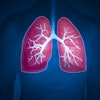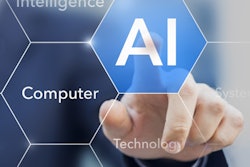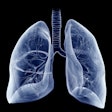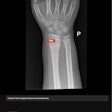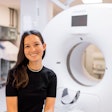
A new survey from France has shown that most radiologists believe artificial intelligence (AI) will reduce medical errors and allow them to spend more time with patients, but many of them still do not use AI. They fear they lack sufficient knowledge, and this may hamper future practice.
 Dr. Thibaut Jacques says the survey results show radiologists are more motivated by the benefits AI may bring to the quality of patient care than by any potential change in workload.
Dr. Thibaut Jacques says the survey results show radiologists are more motivated by the benefits AI may bring to the quality of patient care than by any potential change in workload."The research is significant because this is the first published study to assess the point of view of a large number of radiologists from public hospitals and private practices," said co-author Dr. Thibaut Jacques, a musculoskeletal radiologist at University Hospital of Lille.
"Everyone has opinions, fears, and hopes about AI, but most radiologists don't have the opportunity to share these in the literature. If we want to build our future with AI, first we have to take the pulse of our attitude at the outset, and understand what real-life radiologists know and think," he told AuntMinnieEurope.com.
Jacques and his colleagues at Lille surveyed 200 radiologists and 70 radiology residents across the departments of Nord and Pas de Calais by email about AI attitudes and practice in January 2019. A senior radiologist and resident analyzed responses to the 42 survey questions, including 11 statements with Likert scale answers. Their findings were published online in Diagnostic and Interventional Imaging (6 May 2019).
Mixed results
The research revealed that 19 radiologists (7%) indicated they used an AI-based tool on a daily basis, while 66 respondents (24.4%) said they would start using AI in the next year, and 185 (68.5%) did not use any AI software in their daily practice or foresee any imminent change.
Importantly, 198 (73.3%) considered they had received insufficient previous information on AI, with 37 (13.7%) stating they had received no specific previous information. Furthermore, 231 (85.6%) respondents claimed they had read no (89, 33.3%) or fewer than five (142, 52.6%) scientific publications about AI over the past 12 months. From these answers, the authors estimated that 62 radiologists (23%) had basic knowledge of AI.
In the area of training and education, 255 respondents (94.4%) indicated they were prepared to undertake generic continuous medical education in the domain with 187 (69.3%) prepared to complete technically advanced training.
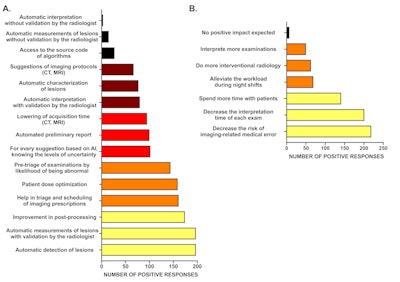

A: Ranking of expected technical features of AI-based tools, depending on the number of positive responses. B: Ranking of expected practical impact of AI-based tools on daily practice, depending on the number of positive responses. Chart and photo courtesy of Dr. Thibaut Jacques, Dr. Q. Waymel, et al.
With regard to their future practice, 214 respondents (79.3%) thought that AI would have a positive impact: A total of 219 radiologists (81%) hoped that AI would lower imaging-related medical errors, while 201 (74.4%) expected that AI would lower exam interpretation time. A total of 141 (52.2%) believed that it would help increase the time radiologists spent with patients, while 50 (18.5%) expected an increase in the number of examinations performed.
The authors also noted that 165 respondents (61.1%) thought that the need for radiologists in 10 years would remain the same, 34 (12.6%) projected higher need, while 71 (26.3%) thought need would be lower.
"Most radiologists feel that they don't have enough practical information and that they clearly lack training in this field. But more interestingly, they want to learn, no matter how old they are and where they work; they want to improve their skills," Jacques said.
He stressed that radiologists' greatest expectation of AI is the improvement in the quality of patient care, rather than the increase in the number of examinations performed, which came second to last in the ranking of hopes and expectations for AI's impact.
"It is clear that tomorrow's radiologists should head for quality -- more than quantity -- and stand their ground at the center of patient care," he noted.

